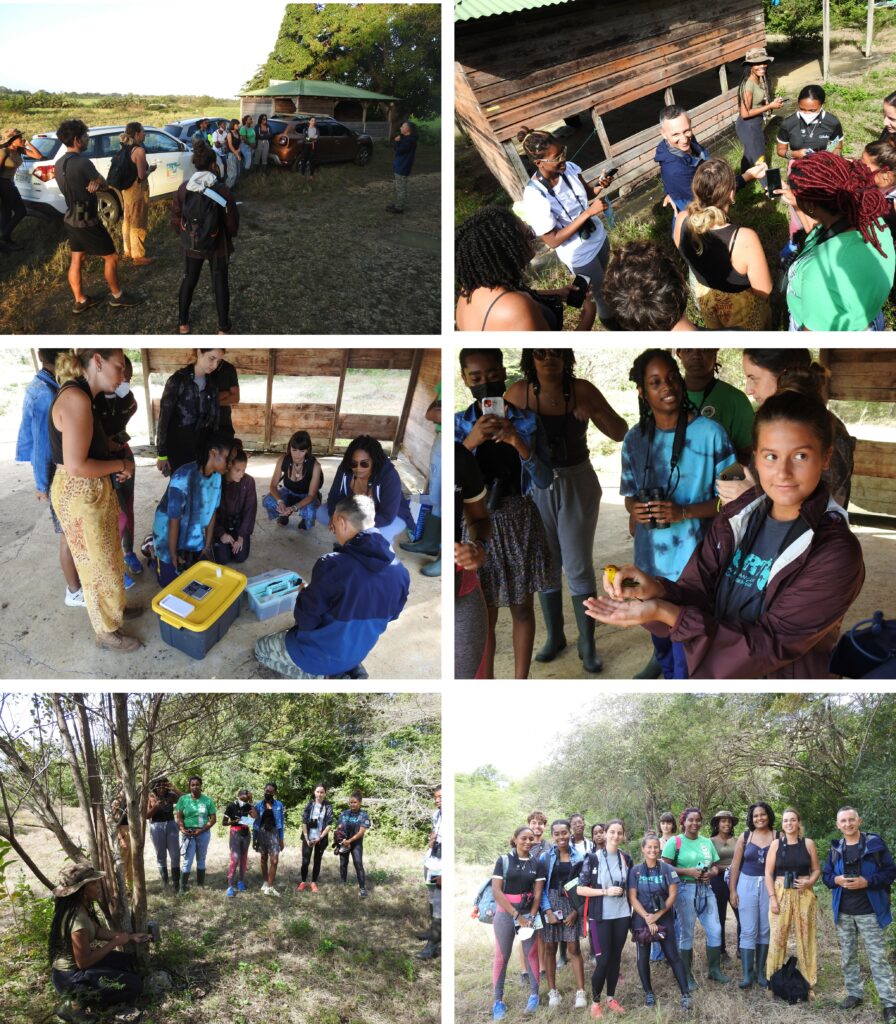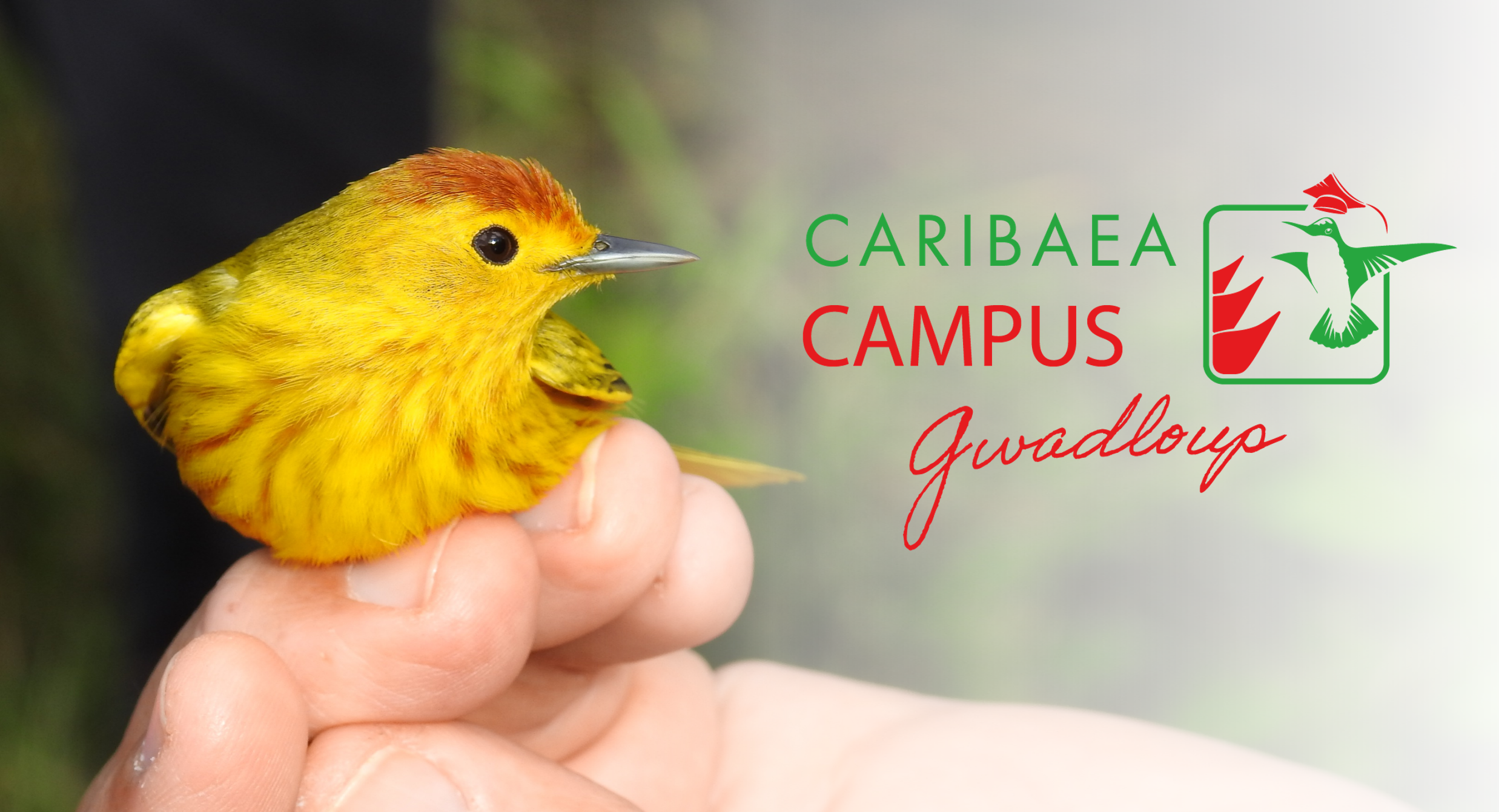If education in the study of wildlife relies on a strong theoretical background taught at the University, there is nothing as effective as a trip to the field to discover the techniques used in situ. At the end of February, the students members of Caribaea Campus Gwadloup benefited from a half-day of practical training in ornithology, supervised by three specialists in the field.
For the 12 young members of the Caribaea Campus Gwadloup association, enrolled in biology courses ranging from the first year of a bachelor’s degree to the second year of a master’s degree at the Université des Antilles (Guadeloupe), this was a unique opportunity to approach birds so closely. It was in the forest of Poyen, a biological reserve managed by the ONF (French National forestry office), that they were welcomed by Anthony Levesque, an outstanding ornithologist specializing in birds from the French West Indies, as well as Aurélie Jean-Pierre and Christopher Cambrone, both of them working on birds as part of their PhD project, funded by Caribaea Initiative.
The three specialists explained to the students the main techniques used in bird monitoring, such as how to capture, identify of measure the animals. They set up nets and were able to capture bananaquits and yellow warblers, much to the delight of the students. These birds were used to illustrate the explanations, in particular concerning the criteria for species identification, while showing the right gestures for handling individuals. The specific equipment used in wildlife monitoring could also be manipulated by the students: rings of all sizes to identify different species of birds, devices to measure them, and even camera traps.
This field trip was the first organized for the very recent association Caribaea Campus, which works in favour of the preservation of the natural Caribbean heritage and biodiversity, in particular through naturalist and scientific education actions: naturalist field trips, seminars, workshops, or even support for students in their search for internships, in the design of their projects or in their participation in conferences (learn more).
The event also brings together several projects of the association Caribaea Initiative: in addition to the link with Caribaea Campus, this field trip was indeed carried out within the framework of the PROSPOVERG project, a project funded by the OFB (French Office of Biodiversity) and carried by the association Amazona in partnership with Caribaea Initiative. One of its main missions is precisely the training of students in wildlife monitoring techniques (learn more about the PROSPOVERG project). Anthony Levesque, a major actor in the study of birds in the West Indies, is also the founder of the association Amazona, and was its president for 10 years. Finally, the participation of Christopher Cambrone and Aurélie Jean-Pierre was possible thanks to the training they received as part of their doctorate as well as their own involvement in the PROSPOVERG project. The development of local scientific and naturalist capacities is one of the objectives of Caribaea Initiative, and it is very important that the newly trained actors can not only use their knowledge and skills in an applied framework, but also ensure their transmission. This part was a success here: the students who participated in the field trip will indeed have the opportunity to assist in the field Sandy Sébastien, former master’s student recently recruited as a technician for the PROSPOVERG project, in the setup of camera traps and sound recorders.


